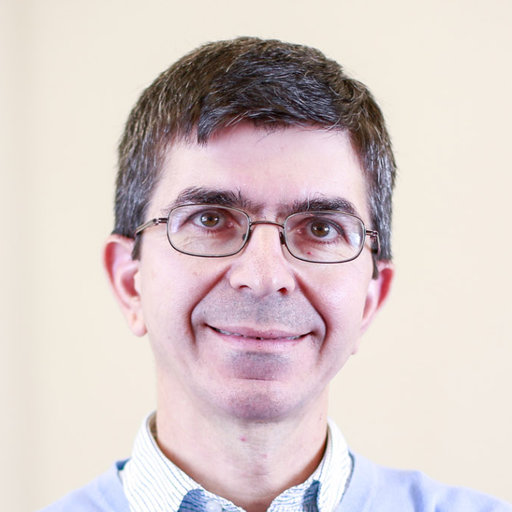Keynote speakers are added to this list as they are confirmed.
Prof. Angelo Cangelosi

University of Manchester and Alan Turing Institute, UK
Title: Developmental Robotics for Language Learning, Trust and Theory of Mind
Abstract: Growing theoretical and experimental research on action and language processing and on number learning and gestures clearly demonstrates the role of embodiment in cognition and language processing. In psychology and neuroscience, this evidence constitutes the basis of embodied cognition, also known as grounded cognition (Pezzulo et al. 2012). In robotics and AI, these studies have important implications for the design of linguistic capabilities in cognitive agents and robots for human-robot collaboration, and have led to the new interdisciplinary approach of Developmental Robotics, as part of the wider Cognitive Robotics field (Cangelosi & Schlesinger 2015; Cangelosi & Asada 2022). During the talk we will present examples of developmental robotics models and experimental results from iCub experiments on the embodiment biases in early word acquisition and grammar learning (Morse et al. 2015; Morse & Cangelosi 2017) and experiments on pointing gestures and finger counting for number learning (De La Cruz et al. 2014). We will then present a novel developmental robotics model, and experiments, on Theory of Mind and its use for autonomous trust behavior in robots (Vinanzi et al. 2019, 2021). The implications for the use of such embodied approaches for embodied cognition in AI and cognitive sciences, and for robot companion applications will also be discussed.
Bio: Angelo Cangelosi is Professor of Machine Learning and Robotics at the University of Manchester (UK) and co-director of the Manchester Centre for Robotics and AI. He also is Turing Fellow at the Alan Turing Institute London, Visiting Professor at Hohai University, and Visiting Distinguished Fellow at AIST-AIRC Tokyo. His research interests are in cognitive and developmental robotics, language grounding, human robot-interaction and trust, and robot companions for health and social care. Overall, he has secured over £35m of research grants as coordinator/PI. Cangelosi has produced more than 300 scientific publications. Cangelosi is Editor of the journals Interaction Studies and IET Cognitive Computation and Systems, and in 2015 was Editor-in-Chief of IEEE Transactions on Autonomous Development. His book “Developmental Robotics: From Babies to Robots” (MIT Press) was published in January 2015, and recently translated in Chinese and Japanese. His latest book “Cognitive Robotics” (MIT Press), coedited with Minoru Asada, was recently published in 2022.
Prof. Dr. Barbara Hammer

Bielefeld University, CITEC Centre of Excellence, Germany
Title: Challenges of Incremental Learning
Abstract: Smart products and AI components are increasingly available in industrial applications and everyday life. This offers great opportunities for cognitive automation and intelligent human-machine cooperation; yet, it also poses significant challenges since a fundamental assumption of classical machine learning, an underlying stationary data distribution, might be easily violated. Unexpected events or outliers, sensor drift, or individual user behavior might cause changes of an underlying data distribution, typically referred to as concept drift or covariate shift. Concept drift requires a continuous adaptation of the underlying model and efficient incremental learning strategies. Within the presentation, I will have a look at recent developments in the context of incremental learning schemes for streaming data, putting a particular focus on the challenge of learning with drift and detecting and disentangling drift in possibly unsupervised setups and for unknown type and strength of drift. More precisely, I will deal with the following aspects: (1) Learning schemes for incremental model adaptation from streaming data in the presence of concept drift, (2) various mathematical formalizations of concept drift and detection / quantification of drift based thereon, and (3) decomposition and explanation of drift. I will present a couple of experimental results using benchmarks from the literature, and I will have a glimpse on mathematical guarantees which can be provided for some of the algorithms.
Bio: Barbara Hammer is a full Professor for Machine Learning at the CITEC Cluster at Bielefeld University, Germany. She received her Ph.D. in Computer Science in 1999 and her venia legendi (permission to teach) in 2003, both from the University of Osnabrueck, Germany, where she was head of an independent research group on the topic ‘Learning with Neural Methods on Structured Data’. In 2004, she accepted an offer for a professorship at Clausthal University of Technology, Germany, before moving to Bielefeld in 2010. Barbara’s research interests cover theory and algorithms in machine learning and neural networks and their application for technical systems and the life sciences, including explainability, learning with drift, nonlinear dimensionality reduction, recursive models, and learning with non-standard data. Barbara has been chairing the IEEE CIS Technical Committee on Data Mining and Big Data Analytics, the IEEE CIS Technical Committee on Neural Networks, and the IEEE CIS Distinguished Lecturer Committee. She has been elected as member of the IEEE CIS Administrative Committee and the INNS Board. She is an associate editor of the IEEE Computational Intelligence Magazine, the IEEE TNNLS, and IEEE TPAMI. Currently, large parties of her work focusses on explainable machine learning for spatial-temporal data in her role as a PI of the ERC Synergy Grant Water-Futures.
Prof. Dr. Gitta Kutyniok

Bavarian AI Chair for Mathematical Foundations of Artificial Intelligence, LMU Munich
Adjunct Professor for Machine Learning, University of Tromsø, Norway
Title: Reliable AI: From Mathematical Foundations to Quantum Computing
Abstract: Artificial intelligence is currently leading to one breakthrough after the other, both in public life with, for instance, autonomous driving and speech recognition, and in the sciences in areas such as medical diagnostics or molecular dynamics. However, one current major drawback is the lack of reliability of such methodologies.
In this lecture we will take a mathematical viewpoint towards this problem, showing the power of such approaches to reliability. We will first provide an introduction into this vibrant research area, focussing specifically on deep neural networks. We will then survey recent advances, in particular, concerning generalization guarantees and explainability methods. Finally, we will discuss fundamental limitations of deep neural networks and related approaches in terms of computability, which seriously affects their reliability, and reveal a connection with quantum computing.
Bio: Gitta Kutyniok currently has a Bavarian AI Chair for Mathematical Foundations of Artificial Intelligence at the Ludwig-Maximilians Universität München. She received her Diploma in Mathematics and Computer Science as well as her Ph.D. degree from the Universität Paderborn in Germany, and her Habilitation in Mathematics in 2006 at the Justus-Liebig Universität Gießen. From 2001 to 2008 she held visiting positions at several US institutions, including Princeton University, Stanford University, Yale University, Georgia Institute of Technology, and Washington University in St. Louis. In 2008, she became a full professor of mathematics at the Universität Osnabrück, and moved to Berlin three years later, where she held an Einstein Chair in the Institute of Mathematics at the Technische Universität Berlin and a courtesy appointment in the Department of Computer Science and Engineering until 2020. In addition, Gitta Kutyniok holds an Adjunct Professorship in Machine Learning at the University of Tromso since 2019. Gitta Kutyniok has received various awards for her research such as an award from the Universität Paderborn in 2003, the Research Prize of the Justus-Liebig Universität Gießen and a Heisenberg-Fellowship in 2006, and the von Kaven Prize by the DFG in 2007. She was invited as the Noether Lecturer at the ÖMG-DMV Congress in 2013, a plenary lecturer at the 8th European Congress of Mathematics (8ECM) in 2021, and the lecturer of the London Mathematical Society (LMS) Invited Lecture Series in 2022. She was also honored by invited lectures at both the International Congress of Mathematicians 2022 (ICM 2022) and the International Congress on Industrial and Applied Mathematics (ICIAM 2023). Moreover, she was elected as a member of the Berlin-Brandenburg Academy of Sciences and Humanities in 2017 and of the European Academy of Sciences in 2022, and became a SIAM Fellow in 2019. She is currently the main coordinator of the Research Focus “Next Generation AI” at the Center for Advanced Studies at LMU and the DFG-Priority Program “Theoretical Foundations of Deep Learning”, serves as Vice President-at-Large of SIAM, and acts as Co-Director of the Konrad Zuse School of Excellence in Reliable AI (relAI) in Munich. Gitta Kutyniok’s research work covers, in particular, the areas of applied and computational harmonic analysis, artificial intelligence, compressed sensing, deep learning, imaging sciences, inverse problems, and applications to life sciences, robotics, and telecommunication.
Prof. Dr. Ilias Maglogiannis

Dept of Digital Systems
University of Piraeus, Greece
Title: Intelligent Pervasive Applications for Holistic Health Management
Abstract: The advancements in telemonitoring platforms, biosensors, and medical devices have paved the way for pervasive health management, allowing patients to be monitored remotely in real-time. The visual domain has become increasingly important for patient monitoring, with activity recognition and fall detection being key components. Computer vision techniques, such as deep learning, have been used to develop robust activity recognition and fall detection algorithms. These algorithms can analyze video streams from cameras, detecting and classifying various activities, and detecting falls in real-time. Furthermore, wearable devices, such as smartwatches and fitness trackers, can also monitor a patient’s daily activities, providing insights into their overall health and wellness, allowing for a comprehensive analysis of a patient’s health. In this talk we will discuss the state of the art in pervasive health management and biomedical data analytics and we will present the work done in the Computational Biomedicine Laboratory of the University of Piraeus in this domain. The talk will also include Future Trends and Challenges.
Bio: Dr. Ilias G. MAGLOGIANNIS is the Director of the Computational Biomedicine Laboratory in the Dept of Digital Systems in the University of Piraeus (http://cbml.ds.unipi.gr). He received a Diploma in Electrical & Computer Engineering and a Ph.D. in Biomedical Engineering and Medical Informatics from the National Technical University of Athens (NTUA) Greece in 1996 and 2000 respectively, with scholarship from the Greek Government. From 1996 until 2000 he worked as a Researcher in the Biomedical Engineering Laboratory in NTUA (www.biomed.ntua.gr). From February of 2001 until June 2008 he was with the Dept of Information and Communication Systems Engineering in University of the Aegean (www.icsd.aegean.gr), from 2008 until 2013 he was Assistant Professor in the Dept of Computer Science and Biomedical Informatics in the University of Thessaly (www.dib.uth.gr) and in the beginning of 2013 he joined the Dept. of Digital Systems in the University of Piraeus. He has been principal investigator in many European (i.e. H2020: Gatekeeper, Eupolis, PolicyCloud, CROWDHEALTH, UNCAP, AGILE, FP7: e-LICO, INHOME, FP6: UNITE, NOMAD, TELEMED, FP5: MOMEDA, INTRACLINIC) and National Research programs, while he has also served as external evaluator in R&D projects for the EU, the Botnar Research Center, the Government of Hong Kong, the Republic of Portugal, Czech, Cyprus and Greece. His scientific interests include AI, Biomedical Informatics, Image processing and Computer Vision, Multimedia and Video processing, Mobile and Pervasive Healthcare Systems, Ambient Assisted Living. His published scientific work includes three (3) books (Springer, IOS press and Morgan Claypool Publishers), 130 journal papers and more than 200 international conference papers. Dr. Maglogiannis has received more than 8300 citations on his published work (h-index=42). He served as Associate Editor for the Journals IEEE Biomedical Health Informatics, IEEE Transactions on Information Technology in Biomedicine, Journal on Information Technology in Healthcare and he is editorial board member of Personal and Ubiquitous Computing published by Springer, Journal of Healthcare Engineering and Scientific World Journal published by Hindawi and Intelligent Decision Technologies published by IOS Press. Dr. Maglogiannis is a Fellow Member of EAMBES, Senior member of IEEE – Societies: Engineering in Medicine and Biology, Computer, Communications, SPIE – International Society for Optical Engineering, ACM, the Technical Chamber of Greece, the Greek Computer Society and the Hellenic Society of Bioinformatics. He has served as and General Secretary and Vice- President of the Hellenic Association of Biomedical Engineering (2015-2019), Vice-President of the Hellenic Association of Computer Engineers (2018-2021) and Vice-Chair of IEEE EMBS Greek Chapter (2020-2023). Dr. Maglogiannis is also since 2014 national representative for Greece in the IFIP technical committee TC 12 and president of IFIP Working Group WG12.5 (AI Applications) (https://ifipaiai.org/wg125/).
